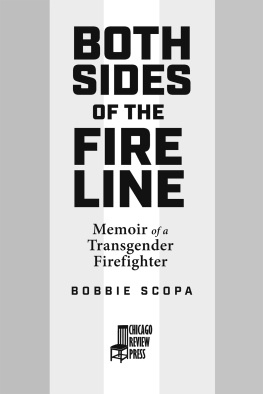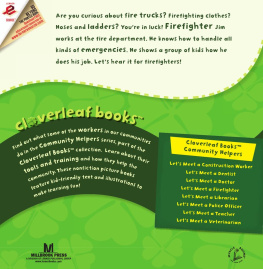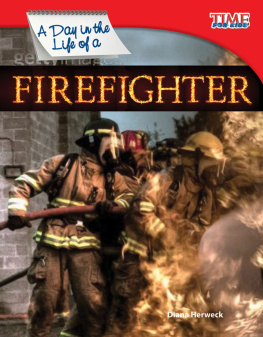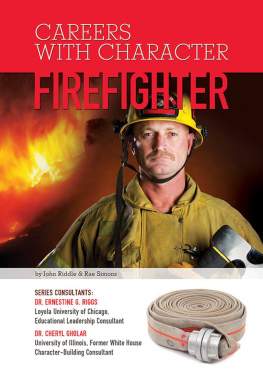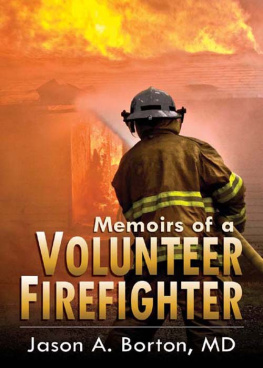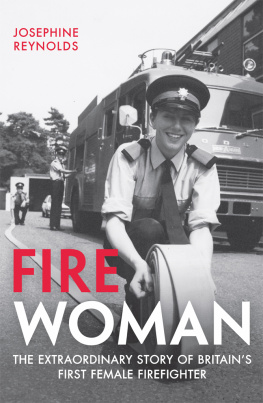Sommaire
Pagination de l'dition papier
Guide
Copyright 2022 by Bobbie Scopa
All rights reserved
Published by Chicago Review Press Incorporated
814 North Franklin Street
Chicago, Illinois 60610
ISBN 978-1-64160-808-4
Library of Congress Control Number: 2022935002
Typesetting: Nord Compo
Printed in the United States of America
5 4 3 2 1
This digital document has been produced by Nord Compo.
This book is dedicated to my amazing children,
Rebecca and Frank.
Acknowledgments
ONE OF THE MOST IMPORTANT lessons Ive learned in my life is that you rarely know when youre influencing someone or having an impact on their life. It could be a positive impact or negative impact. You might not know which. Its a lesson it took me years to understand. In my life, Ive learned so much from watching others. My parents, my bosses, my coworkers, my friends. Im not suggesting that my observations of those folks were necessarily all positive, but they definitely offered me an example and a learning opportunity to either emulate or to avoid. Its all learning.
In the same way, I dont know if my friends have any idea just how important they have been in my life. Quite literally, if not for my friends and some family members, I might not be here today. After my divorce and estrangement from my family, I was set adrift, alone. But I was blessed to have friends who cared about me, who loved me, and who were in my corner. Wherever I moved to, I was gifted with a new network of loving friends. Theyve become like a tether to me, keeping me balanced and anchored.
When I retired, I decided to tell some stories from my forty-five-year career in the fire service. I thought it would be entertaining for the listener as well as full of solid leadership lessons. I wasnt sure how to go about creating a website with recorded stories. John Wake, a man who Ive been friends with since we were thirteen-year-old kids, helped me with the technical aspects of setting up BobbieOnFire.com. That effort has been very rewarding and naturally led me to tell the rest of the story.
The writing of this book is my rest of the story. John has been involved in nearly every aspect through the process. He provided heartfelt perspective to me along the way. Ann Julsen, another of my friends dating back to the 1970s, provided feedback as I wrote each chapter. John and Ann have been supporting my efforts with encouragement, perspectives, and expertise from the beginning.
My sweet cousin Carla was the first person outside my immediate family whom I told my story to. Shes a strong and independent woman whos been an inspiration to me over the years. Her business acumen was so helpful to me as I walked through the minefields of trying to find a publisher.
Janessa Hilliard provided early editorial assistance as well as feedback on my boomer perspectives. Her technical assistance and expertise was invaluable.
What about the young trans kids and their parents? I keep them in my thoughts and prayers. My sincere hope is that this story will help those parents be less fearful for their childrens futures and more understanding of the difficult path their children are on, through no choice of their own.
Thanks to everyone whos been a part of my life. Youre loved and appreciated.
PART I
A LIFE LOST
THE DUDE
GO, GO, GO!
The fire burned rapidly uphill toward us, enveloping the brush and trees.
We were running for our lives.
Run, drop it, leave it! I screamed at the firefighter near me.
He had fallen behind as we ran up the fire line, dropping some of the medical equipment he was carrying. I watched as he struggled, scrambling, trying to pick it back up.
Leave it and just runnow!
I turned around to see what was happening. The fire chased him, coming fast in our direction. Less than a hundred feet away.
Drop it! Run! Run, now!
He turned around and saw the fire coming for us. Finally understanding the severity of the moment, he left the equipment and ran with me back up the hill, both of us desperate to find someplace safe.
I was the B-Shift captain at Fire Station 1. We were staffed with three firefighters on a paramedic fire engine company. It had been an ordinary day at Station 1. My crew had worked together for several years, and we had become quite close. Its what you like to see for a firefighting crew. That kind of closeness can help with communications and crew cohesion, which makes everyone safer and more efficient. We anticipated what the others were thinking and were going to do. It also made spending twenty-four-hour shifts together with the same coworkers day after day more enjoyable. Even though I was the captain and their boss, to some degree I felt like these guys were also my brothers. I always enjoyed going to work with my crew. We truly felt like a unit.
Going to work as a firefighter can be good fun. Every shift is the great unknown. You never know whats going to happen from one minute to the next. But its not all excitement and life-and-death emergencies. Some days you find yourself having to conduct fire prevention inspections. Thats where you inspect businesses for things like up-to-date fire extinguishers and blocked fire exits. Other days youre working on a routine project around the stationwaiting for, hoping for, anxious for an emergency call. Because thats why were firefighters: we like going on emergency calls. Its who we are.
Before you think that were horrible human beings for wanting there to be an emergencyarguably the worst day of someone elses lifewhile on duty, think about a surgeon who trains for years, but only ever gets to take out a splinter from someones finger. As a professional, the surgeon wants to be on duty when that emergency appendectomy needs to be performed. In the same manner, enthusiastic firefighters dont wish bad news for anyone. But, as I used to half-jokingly say, if someones house must burn down, please let it happen on B-Shift.
A common trait of firefighters is a short attention span. I dont mean to disparage the firefighting profession, but there is some truth to that statement. If you enjoy knowing on Sunday evening what youre going to be doing at work on Monday, you probably wont enjoy being a firefighter. The thing about being a firefighter is the work is constantly changing. If you dont like responding to a medical call, thats OK. Because as soon as the medical call is over, you may be responding to an auto accident or rescuing someone from a mountainside cliff or helping an elderly homeowner replace the batteries in their smoke detector. Its not for everyone, but for those of us who enjoy the spontaneity of never knowing whats next, the job is a dream.
In 1990 the population of the greater Prescott area where I worked was about fifty thousand people. Those people and their town were protected by a city and a county fire department. Prescott is nestled in a little valley surrounded by high mountain peaks within a national forest. Thirty years later, its still a beautiful and historic little place tourists flock to in the summer to escape the extreme heat down in Phoenix. It was a great place to live and raise a young family. We had a good life in Prescott. Constant and steady and a safe place for my children.
In June 1990 it was going to be hot for the next couple of days in the high country of Arizona. Temperatures were predicted to be in the high 90s. As a matter of fact, in Phoenix on June 26, the high temperature hit 122 degrees Fahrenheit. It had been a warm, rain-barren spring, and the vegetation was already dry as a bone around the Arizona high country. We were expecting that any fire ignition in northern Arizona could possibly result in a large wildfire. We were trained for wildfires as well as structure fires, since there was always an elevated threat of wildfire in our community.

